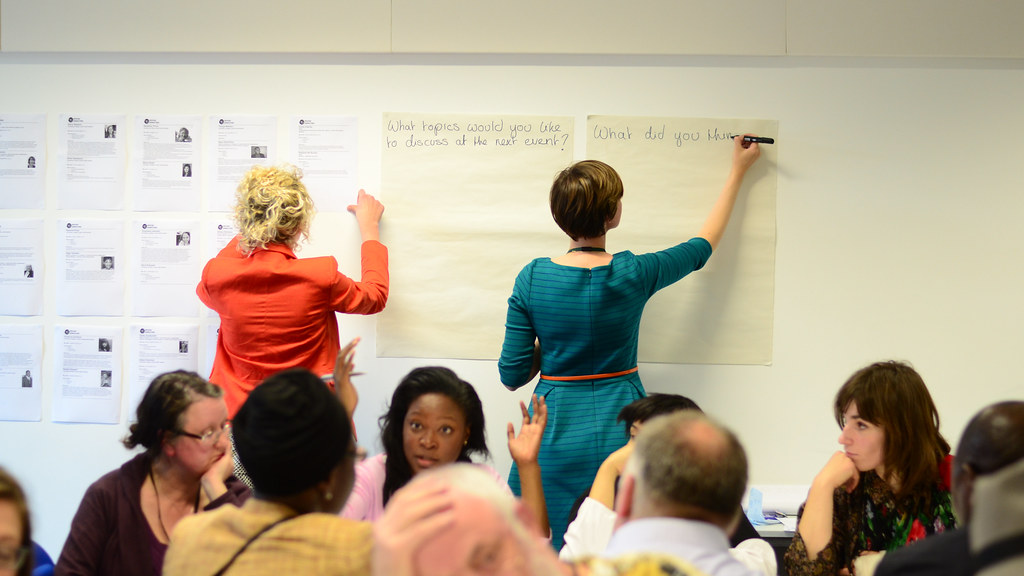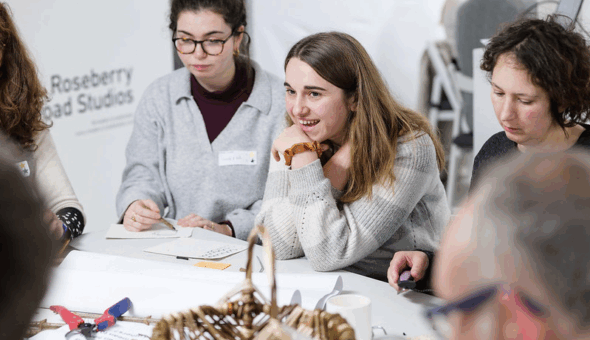We explored some of the issues around training and professional development in our previous ChallengeCPD@Bath blog. One issue we wanted to explore in more detail was what we call our training and professional development offer; what that tells us about the culture towards professional development at universities and how that impacts our work.
Barriers towards participation in training
There are several barriers to participating in training programmes that are often cited by researchers: pressures on time, a lack of awareness of available opportunities and lack of incentives to engage with professional development. What you call the offer has also emerged as a significant barrier, but why?
What’s wrong with ‘training’?
The language associated with training and professional development was problematic for researchers, with both ‘training’ and ‘professional development’ generally disliked by them. Scratching beneath the surface of this dislike revealed some interesting general attitudes towards professional development within higher education institutions in general.
There is significant resistance within academic communities to professional development for several reasons:
- it is often seen as reflecting a culture of performance management and an encroachment on academic freedom
- there is often a lack of coordination of the offer which results in lack of coherence in provision
- there is a long-held assumption that the doctorate degree prepares researchers for other roles researchers often hold during their academic career
- short-term funding of academic staff usually means professional development is a marginal priority
- professional development is often too narrowly defined by senior management
These findings offer a slight reassurance. The issues we’ve encountered in devising and delivering effective training are not unique to us or public engagement in general but reflect a poorly developed culture towards professional development within universities.
Double disadvantage
When combined with public engagement with research, which is itself still a minority activity, this cultural attitude, results in training for public engagement being doubly disadvantaged. Inviting people to participate in training is asking them to do two things that are culturally undervalued at higher education institutions, so it is not surprising that people do not sign up, or do not attend.
Dealing with the disadvantage
Understanding this has really helped us think about our training and professional development offer. Rather than asking people to come to us for training for public engagement, we’re flipping it and saying to our colleagues we can go to them with the training they want as long as it’s with a public engagement focus. We’ve done this in two ways. Firstly, developing public engagement focused sessions to deliver in already existing professional development opportunities for researchers such as the Bath Course in Enhancing Academic Practice, a compulsory programme for all probationary lecturers. Secondly, by developing material that focuses primarily on the professional development needs of the researcher in general, such as leadership skills or grant writing using public engagement with research as the content.
Going beyond the workshop
In the Factors Affecting Public Engagement by UK Researchers (2016) study, it was found that formal training is a crucial mechanism for reducing barriers to engagement for researchers. However, we suspect much activity we would define as training actually won't get reported in these surveys. As a sector need to broaden our definition of training. Training for public engagement is too narrowly defined, we need to move away from thinking of it as just the workshops we devise and deliver and incorporate the range of interventions we offer. We’ve now started to reframe all our programmes as training and professional development opportunities with our researchers. From one-to-one coaching conversations, applying for one of our Engage Grants or opportunities to practice public engagement, we are more overt in describing them as opportunities to learn about public engagement.
So, is it training, professional development or learning?
The terms training, learning, professional development are used somewhat interchangeably. Terminology is a tricky area and not one we found a simple solution to, but we did land on a few useful definitions:
- Training – is a particular intervention, e.g. a workshop.
- Professional development - is a broader set of interventions (e.g. carrying out public engagement activities, one to one conversations) that enrich researchers’ professional skills or career.
- Learning – the knowledge, skills or expertise that emerge from activities, actions and interventions.
Focusing on formal training sessions alone is unhelpful, we should think more about the learner and their needs.
For us, training and professional development is more than what we devise and deliver, it’s about the learning we help to foster, whether that be a workshop, an internal news item or through the process of applying for a public engagement award. This framing has really helped us reshape our whole approach to training and professional development.
Up next on the blog.....
In the next blog, we’ll look in a little more detail about putting the learner at the heart of our training and professional development programmes.
Helen Featherstone is Head of Public Engagement at the University of Bath.
Respond



